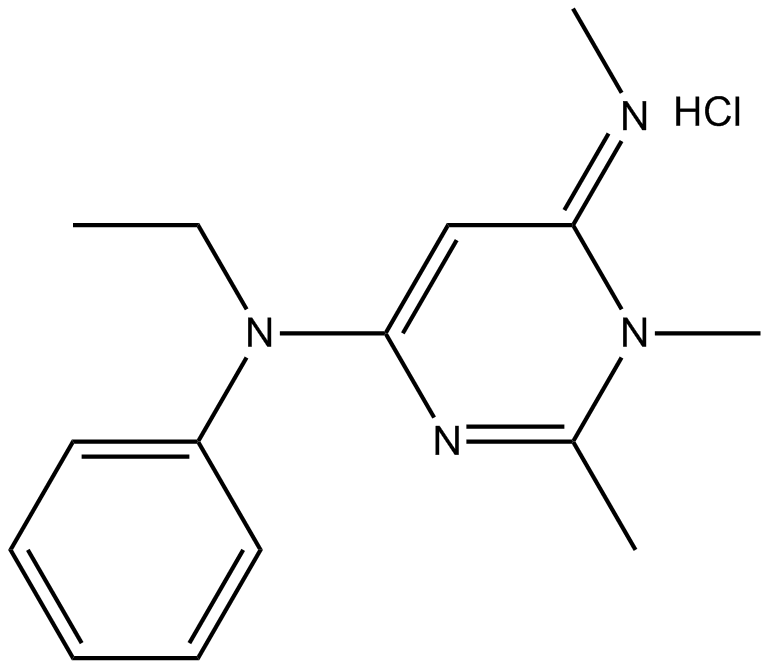ZD 7288 (Synonyms: ICI-D 7288) |
| Catalog No.GC10578 |
HCN channel inhibitor
Products are for research use only. Not for human use. We do not sell to patients.

Cas No.: 133059-99-1
Sample solution is provided at 25 µL, 10mM.
ZD 7288 is an inhibitor of hyperpolarization-activated cyclic nucleotide-gated (HCN) channel [1].
The HCN channel is found in the sinoatrial node (SAN) and is permeable to both Na+ and K+. The HCN current exists in neurons under hyperpolarization of the cell membrane and plays an important role in neuropathic pain [1].
In CA1 pyramidal cells from Wistar rats, ZD 7288 inhibited T-type Ca2+ channel currents in a concentration-dependant way [2]. In neonatal rat facial motoneurones, ZD-7288 (0.1-10 μM) inhibited the hyperpolarisation-activated current with IC50 value of 0.2 μM in a time- and voltage-dependent way [3]. In CA1 pyramidal neurons, ZD 7288 (1-1000 μM) inhibited the hyperpolarization-activated current. However, ZD 7288 had no influence on long-term depression (LTD) of the CA3-CA1 synapse [4].
In rats with chronic visceral pain, ZD 7288 (50-100 nM) significantly inhibited abdominal withdrawal reflex (AWR) scores and electromyographic (EMG) responses. Also, ZD 7288 significantly increased pain thresholds. These results suggested that spinal HCN channels might play a critical role in chronic visceral pain [1].
References:
[1]. Chen Y, Lin C, Tang Y, et al. ZD 7288, an HCN channel blocker, attenuates chronic visceral pain in irritable bowel syndrome-like rats. World J Gastroenterol, 2014, 20(8): 2091-2097.
[2]. Sánchez-Alonso JL, Halliwell JV, Colino A. ZD 7288 inhibits T-type calcium current in rat hippocampal pyramidal cells. Neurosci Lett, 2008, 439(3): 275-280.
[3]. Larkman PM, Kelly JS. Modulation of the hyperpolarisation-activated current, Ih, in rat facial motoneurones in vitro by ZD-7288. Neuropharmacology, 2001, 40(8): 1058-1072.
[4]. Gasparini S, DiFrancesco D. Action of the hyperpolarization-activated current (Ih) blocker ZD 7288 in hippocampal CA1 neurons. Pflugers Arch, 1997, 435(1): 99-106.
Average Rating: 5 (Based on Reviews and 37 reference(s) in Google Scholar.)
GLPBIO products are for RESEARCH USE ONLY. Please make sure your review or question is research based.
Required fields are marked with *




















